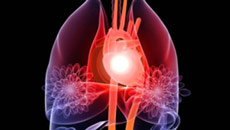With changing times, men try to see themselves as partners and nurturers besides being breadwinners and role models.
But static organisational norms often inhibit them from meeting more recent expectations of being an involved parent, research shows.
"While work-life policies and programmes can be designed to be gender neutral, often organisational cultures are not. There is still a strong cultural perspective that when men become fathers, little will change for them on the work front," researchers said.
Organisations, managers, and co-workers still do not fully recognise and openly appreciate men's care giving roles.
"As fathers take on more responsibility for care giving, workplace norms may inhibit the development of a true involved sense of fathering for these men," said Beth Humberd from University of Massachusetts, Lowell, in the US.
Fatherhood is becoming a more serious and time consuming role for men to fulfill and, therefore, employers must acknowledge that many fathers want to be more than just traditional "organisation men" who dedicate their life to their work.
For the study, researchers interviewed 31 fathers who all have working spouses.
The team found that men juggle four primary images of themselves as fathers, depending on the norms and expectations of their work and home lives: provider, role model, partner and nurturer.
These images reflect the more traditional expectations surrounding the "breadwinning" father, as well as more recent expectations of being an involved parent.
These ideas are influenced by how men perceive their work demands, and the flexibility of their working hours, the study showed.
The findings appeared in the Journal of Business and Psychology.





